Listen to Loop™ Podcast Feature by Dr. Alan Mead
Don’t risk under-curing or over-curing your restorations
Research shows under-cured composites can lead to premature restoration failure.* Simply extending light cure time isn’t the answer — it can introduce heat stress and other complications.**
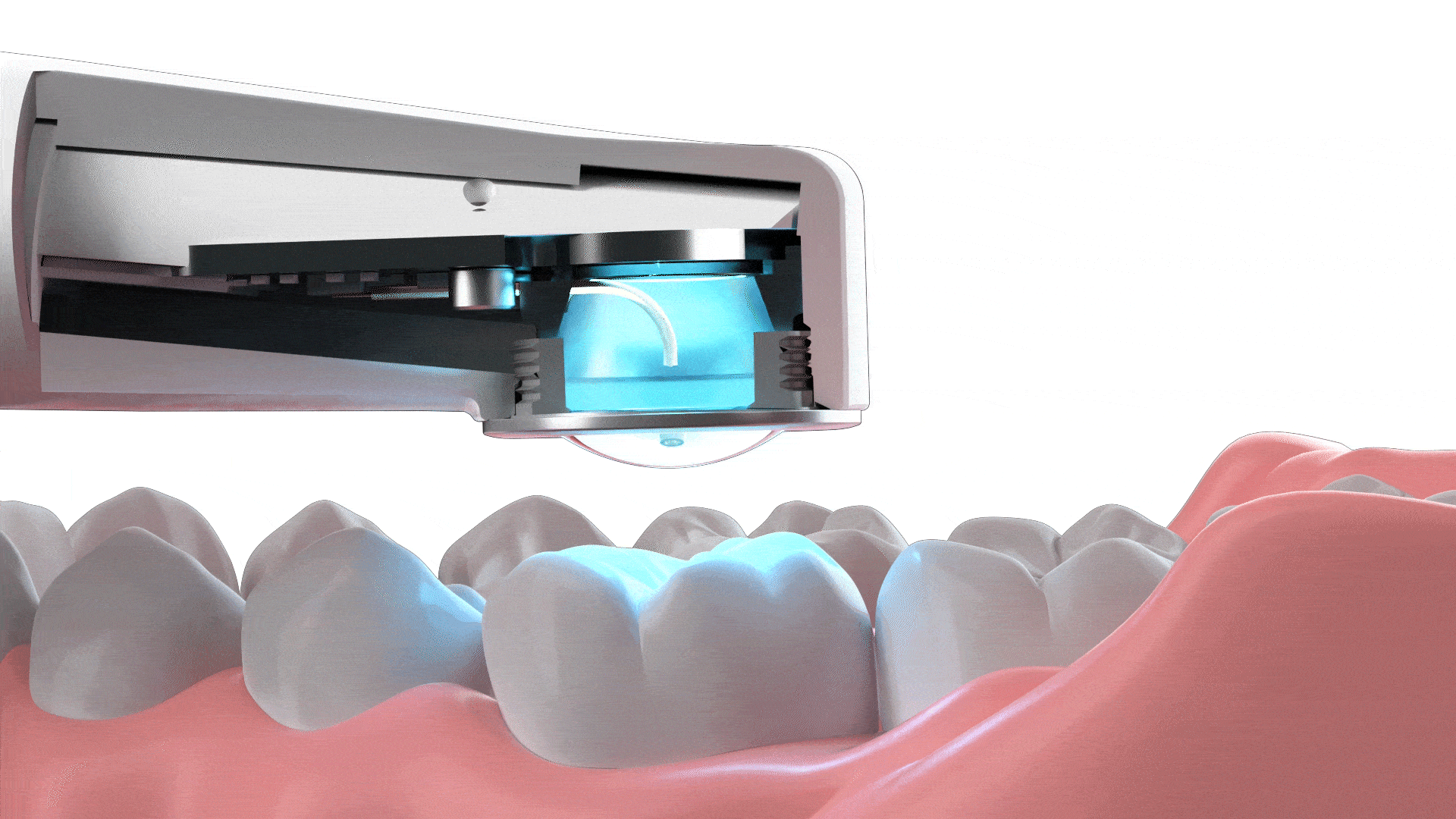
| *Under-cure: | **Over-cure: |
|
|
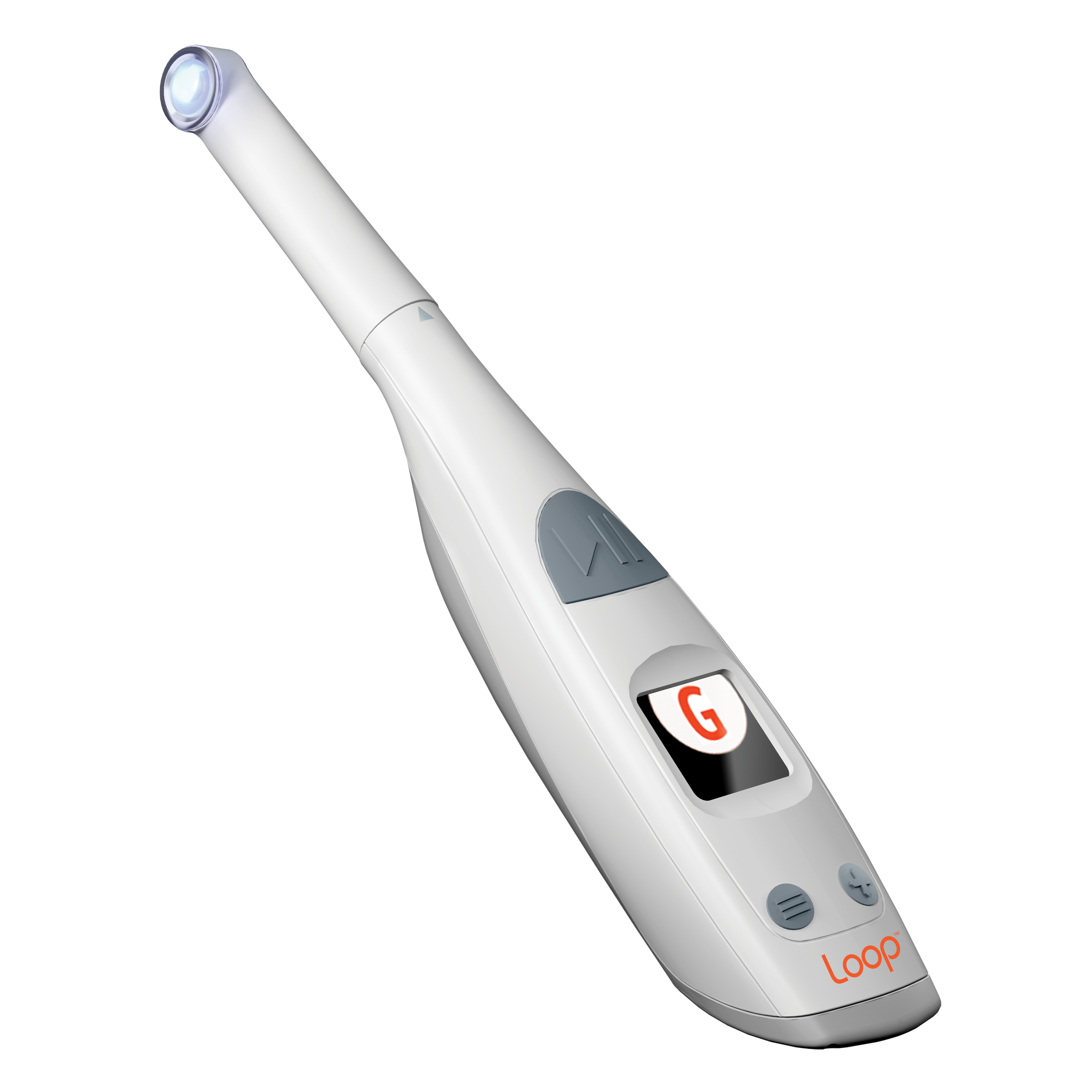
Loop: The Key to Consistent, Perfect Cures
For optimal results, consistent light delivery is crucial. However, achieving perfect hand positioning and distance with a traditional curing light can be challenging.
Loop takes the guesswork out of light curing. It’s the only curing light with real-time feedback that automatically adjusts power to deliver the precise energy dose required for an ideal cure, every single time.
Here’s how Loop benefits you: |
|
Closing the Loop
The name Loop is inspired by the algorithmic feedback loop integrated into Garrison’s Adaptive Power Delivery circuit. This feedback loop serves as the heart and brains of Loop, dynamically adjusting the curing light output in real time. Closed Loop technology, developed and patented by Garrison, is the first true innovation for light curing in a generation.
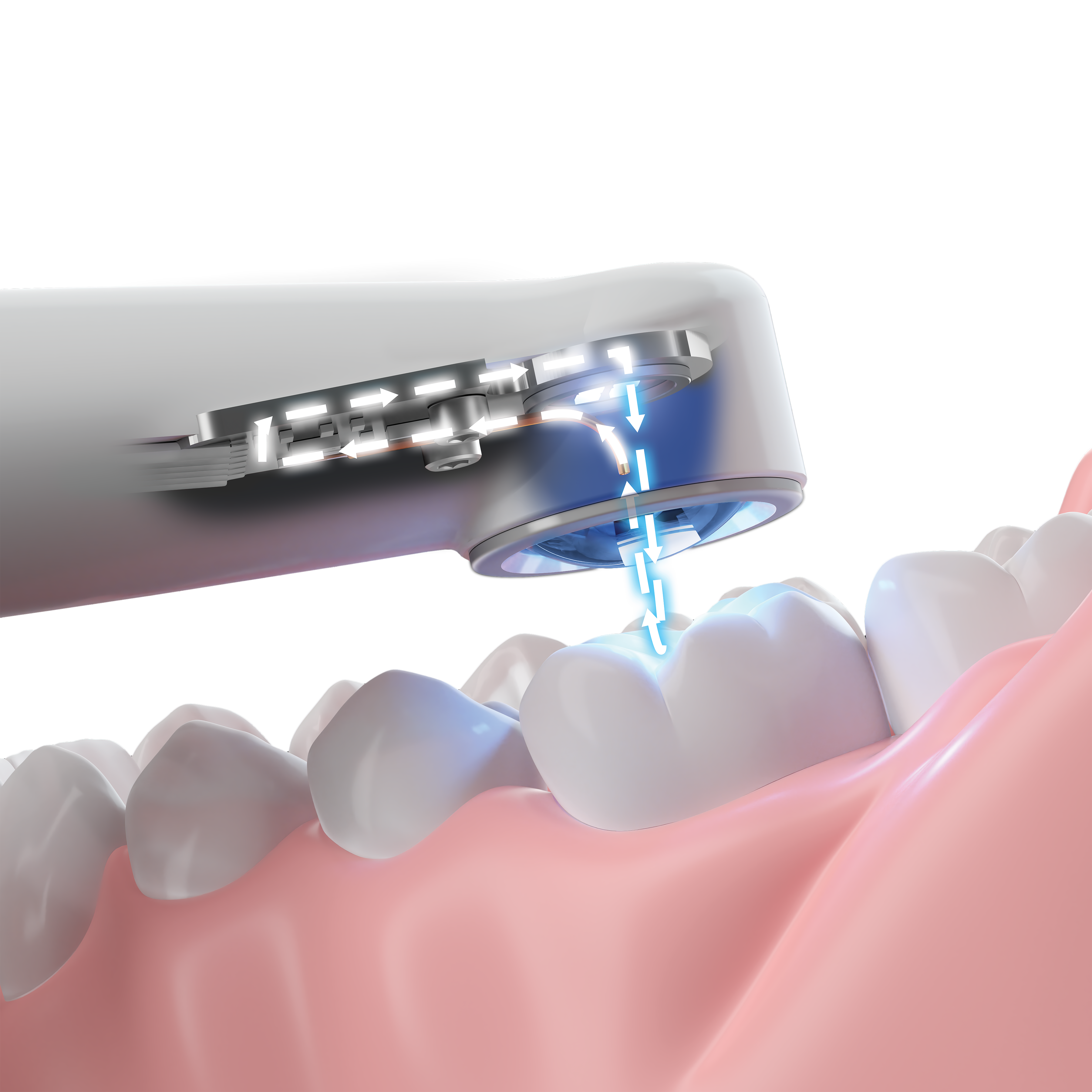
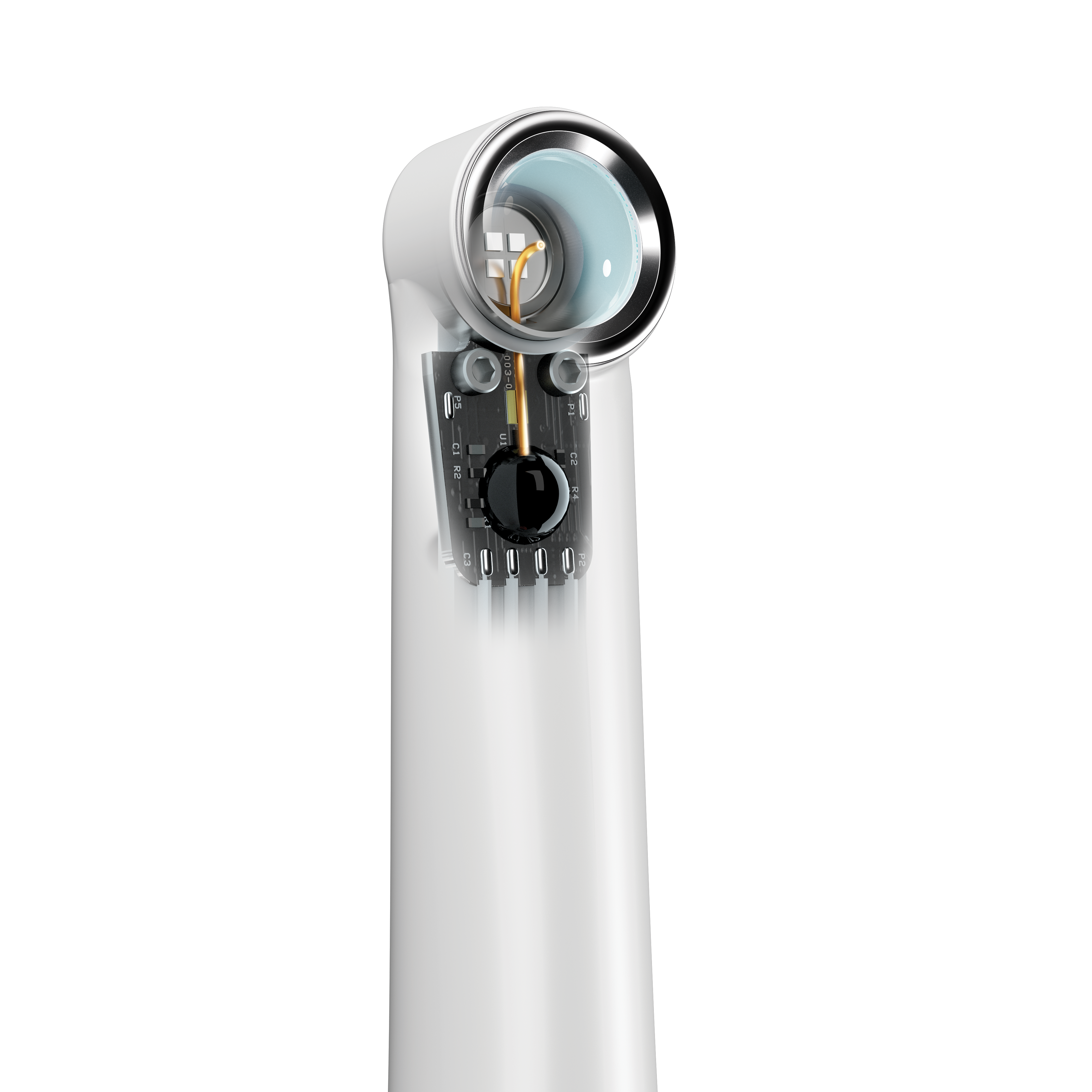
Closed loop algorithm
Adaptive Power Delivery: Loop’s innovative circuitry and advanced closed loop algorithm measure the light reflected from the target surface. This reflected light is directed to the microprocessor, which calculates the actual irradiance on the surface more than 500 times per second. If any deviation from the desired irradiance is detected, the system automatically adjusts the power to the LEDs to compensate. This closed feedback loop maintains the optimal energy level at the target surface, ensuring a perfect cure every time.
Precision Light Delivery: Loop is designed to deliver light only when it is properly aligned with the tooth. By pausing the curing process if the lens drifts too far from the target or is not correctly positioned before starting, Loop ensures the precise dose of light energy is delivered exactly where it is needed, preventing under-cured materials.
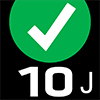
| Loop confirms delivery of the prescribed light energy |
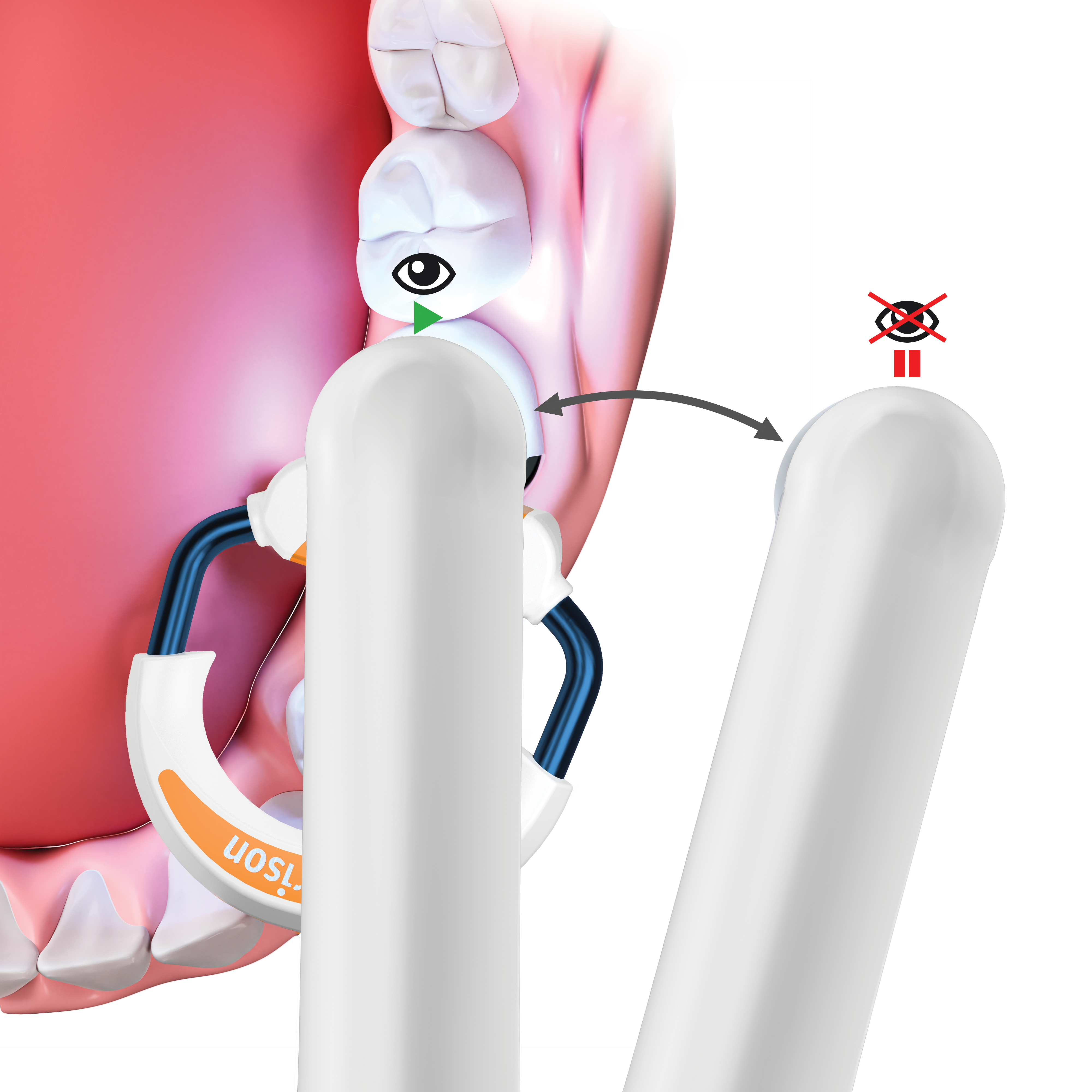
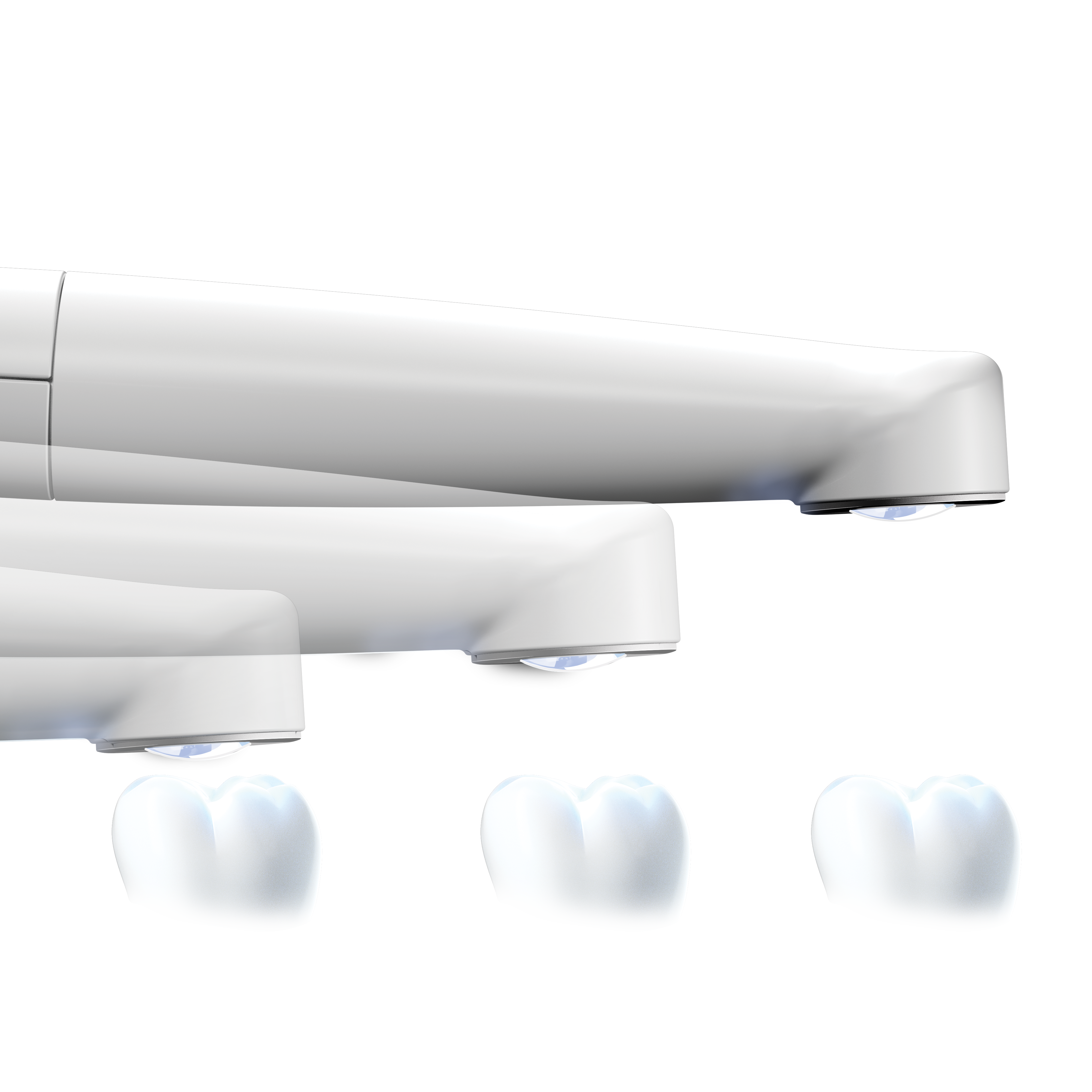
Total Tooth Coverage: Loop starts with a substantial 9.7mm lens diameter, ensuring broad initial coverage. Thanks to its closed-loop control, it maintains the desired irradiance even when the beam expands due to increased distance. This means the effective beam width can be as wide as needed. Simply move the tip away from the target, and Loop will deliver an accurate dose of light energy to a much larger area, ensuring effective curing regardless of positioning.
| Distance from Surface | Diameter of Light Beam | Effective Area | Irradiance at Tip | Irradiance at Tooth |
| 0.0mm | 9.7mm | 74mm² | 1,000 mW/cm² | 1,000 mW/cm² |
| 6.0mm | 12.2mm | 117mm² | 1,500 mW/cm² | 1,000 mW/cm² |
| 10.0mm | 13.0mm | 133mm² | 2,500 mW/cm² | 1,000 mW/cm² |
Broad Spectrum. Uniform Beam.
Loop utilizes a dual-wavelength LED system, efficiently activating a broad range of photoinitiators between 390nm and 480nm. This innovative approach ensures spectral beam homogeneity, a concept where the light’s full spectrum is distributed uniformly across the entire beam. This translates to consistent curing across the entire restoration surface, regardless of the photoinitiator used in the material.
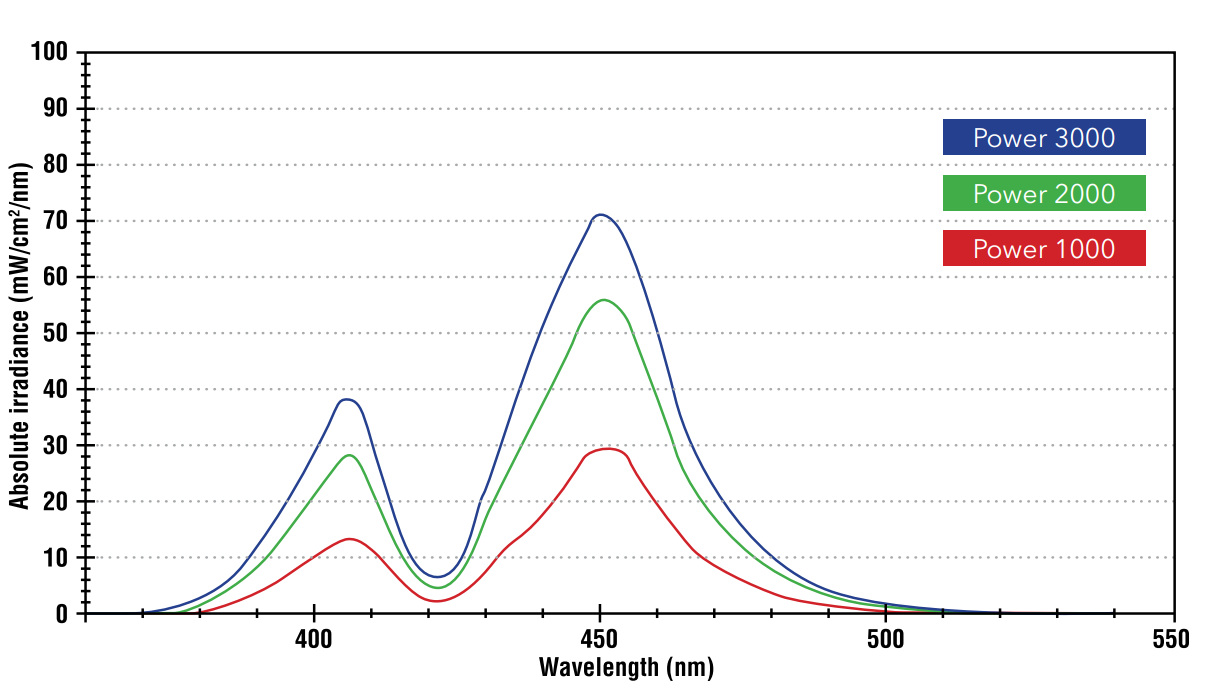
| |
Loop Total Output: 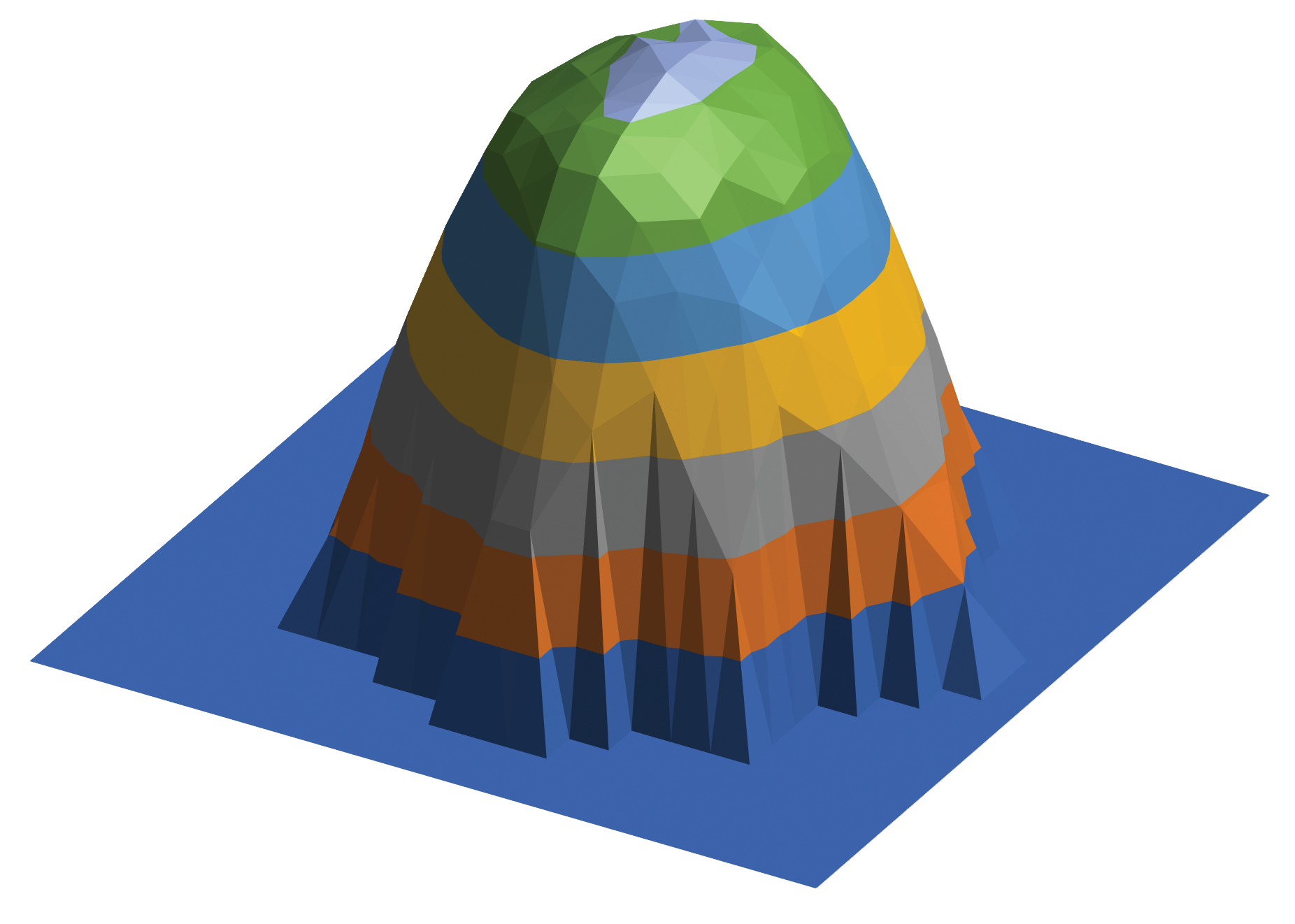
| Loop near UV Output:
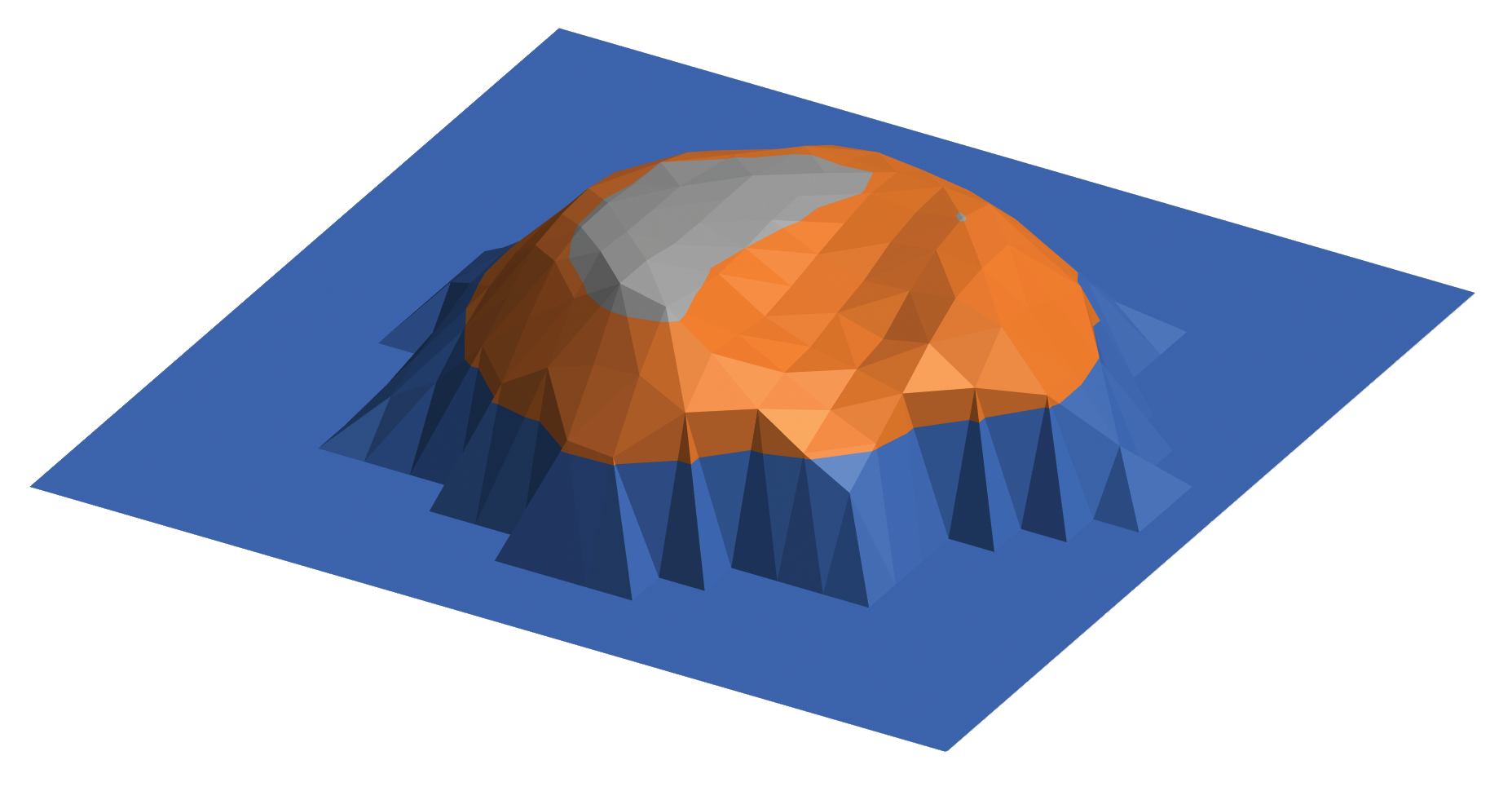
|
‘Leading Competitor’ near UV Output: 
| The competitor’s near UV output is bunched into only a portion of the beam. If this portion of the beam isn’t over the target, the photoinitiator will not be evenly activated. |
Self-Calibrating System
Loop simplifies curing light performance with its built-in self-calibration system, ensuring consistent light output throughout its lifespan.
| Daily Cleaning Checks: | Monthly Full Calibration: | ||
| Each time Loop is returned to its charging base, it performs an automatic cleaning check to ensure the lens is free from debris or scratches. If a minor issue is detected, Loop will notify you and attempt a self-correction. For significant concerns, the system will recommend a full calibration cycle. |
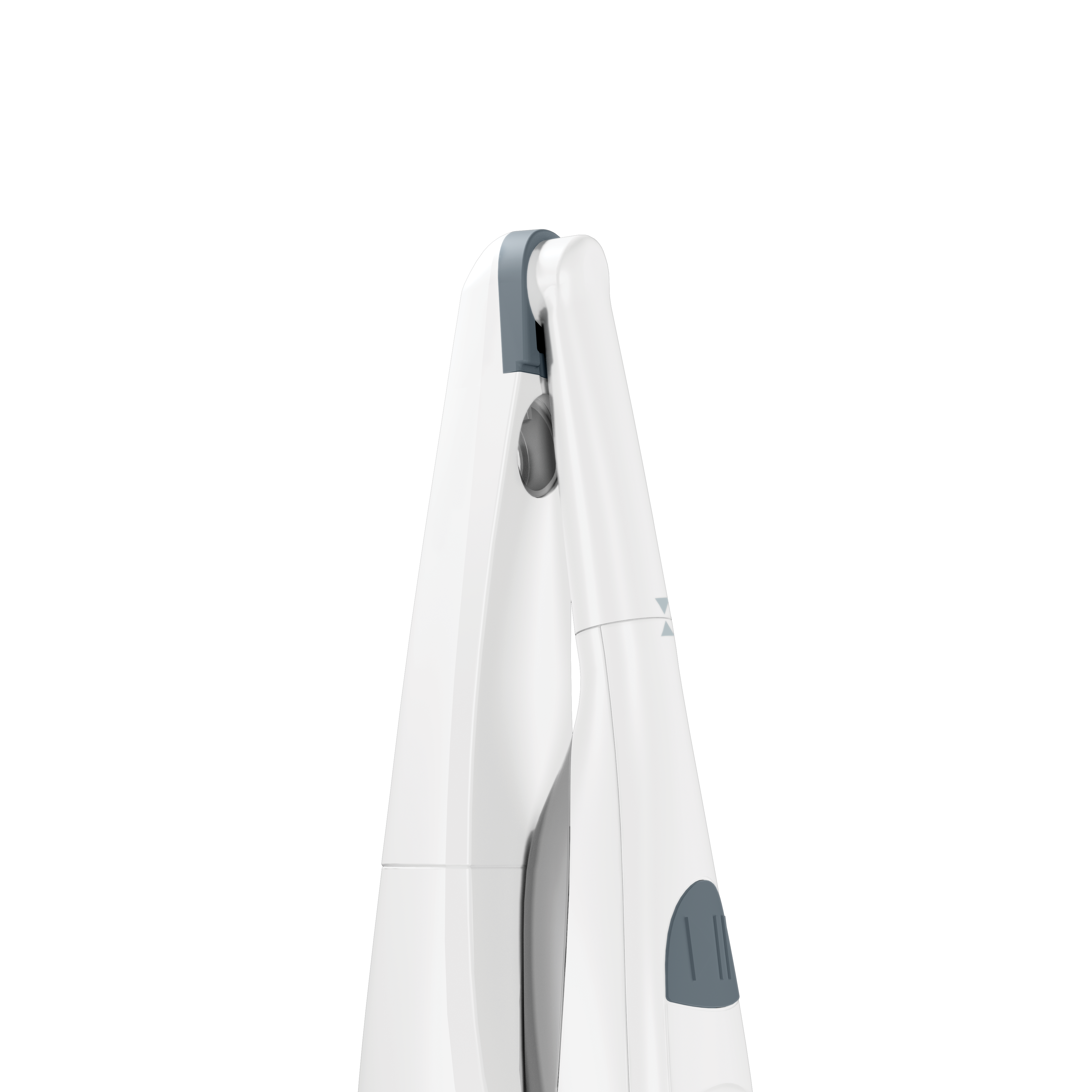
| To maintain optimal performance, a full calibration adjusts for changes in LED age, battery output, or lens issues. This process is recommended monthly or after repeated self-check dirty lens failures, cleaning hardened dental material from the lens, or missed scheduled calibrations. |
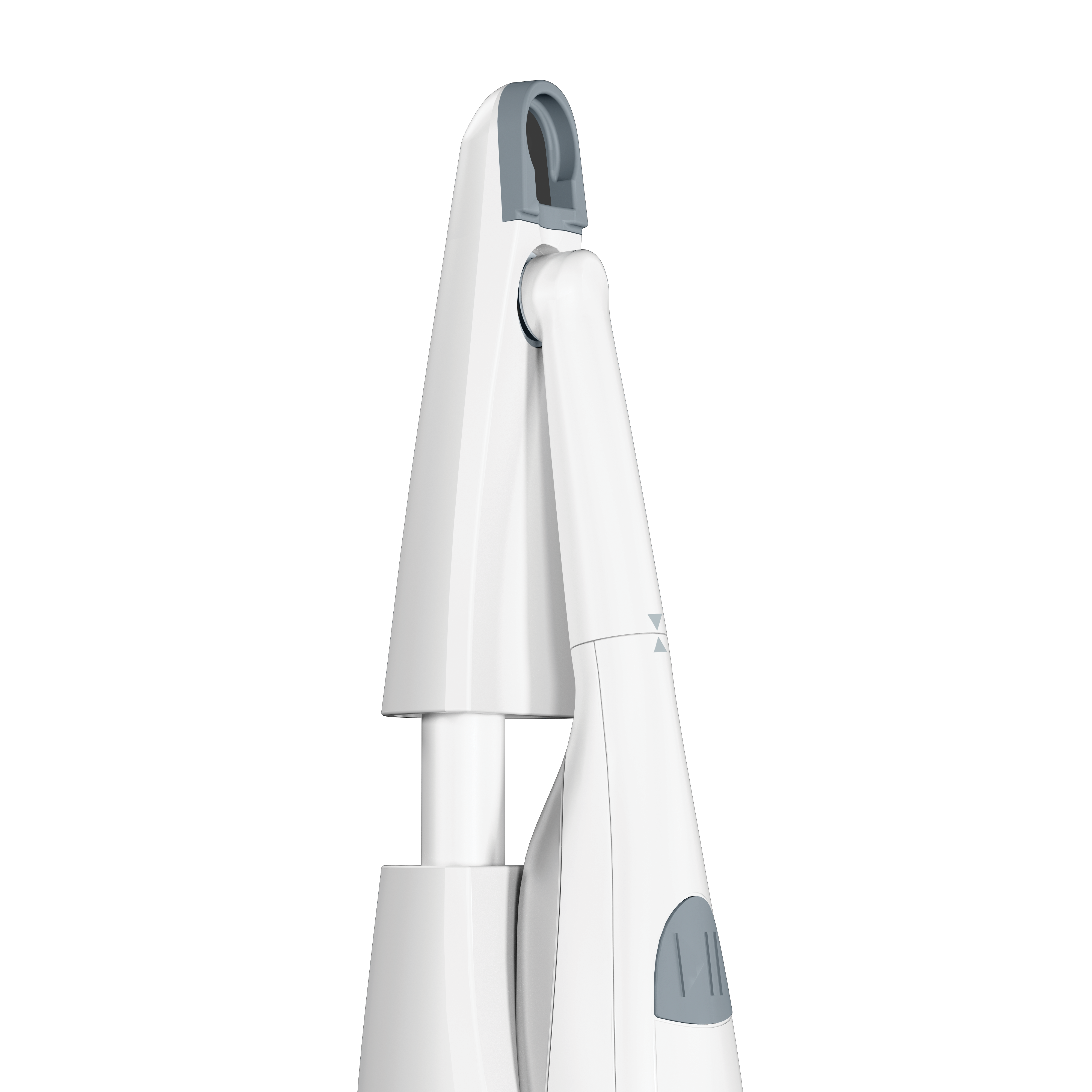
|
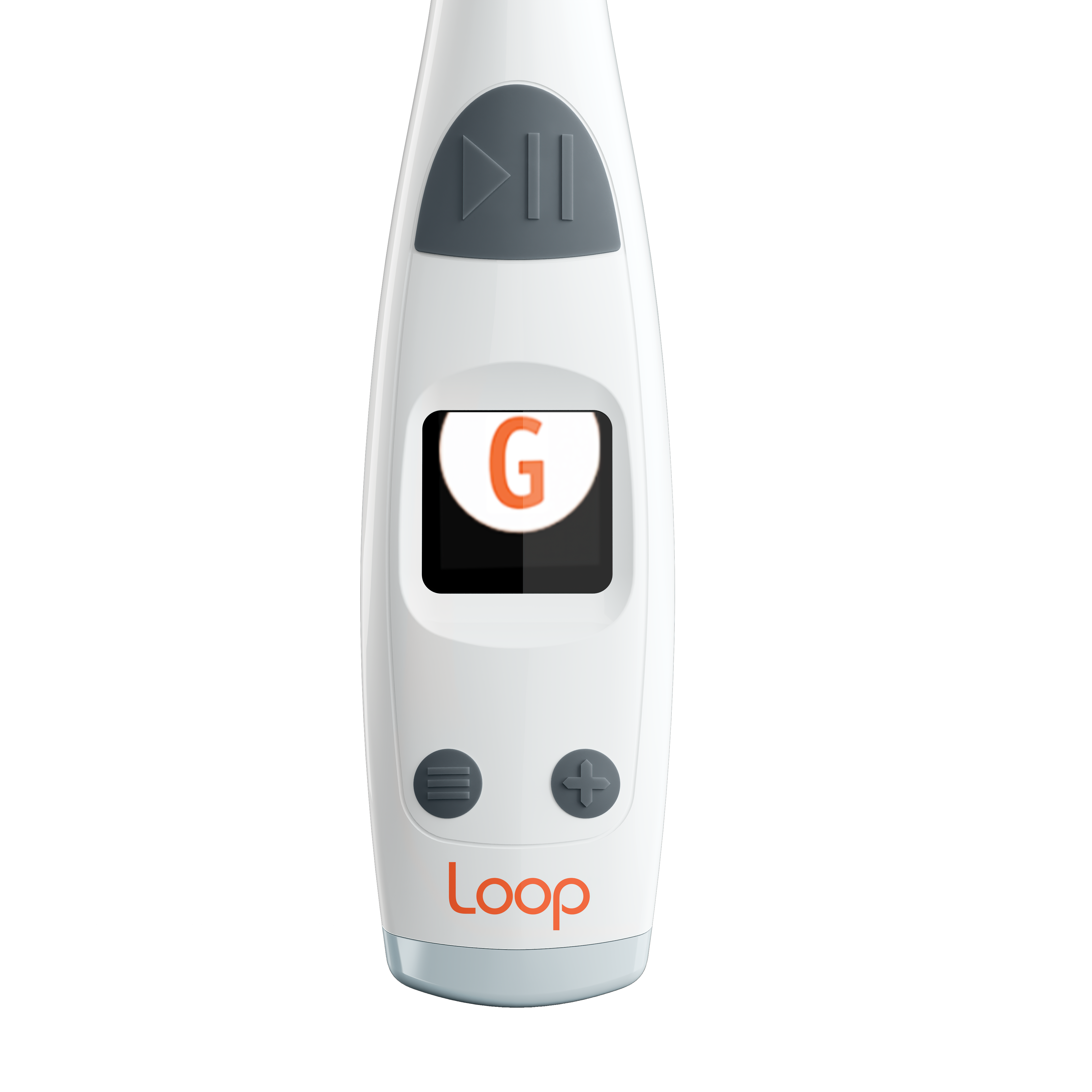
LED Display
The Loop curing light features a full-color LED display that enhances usability with an intuitive control panel, allowing you to navigate and adjust settings effortlessly. It provides real-time feedback, giving you instant confirmation of selected modes, power output, and remaining cure time. This streamlined workflow enables you to verify every step, ensuring confidence and efficiency in achieving optimal results each time.
Loop LED Curing Light Videos
Loop Curing Light Interview with Dr. JD Corey
Loop Components
1 LED curing light handpiece 1 Calibration and charging base 1 Universal power supply and adapters 1 Protective barrier sleeves pack 1 Protective light shield 1 Lens cleaning cloth (not shown) 1 Instructions for Use 1 Quick start guide |
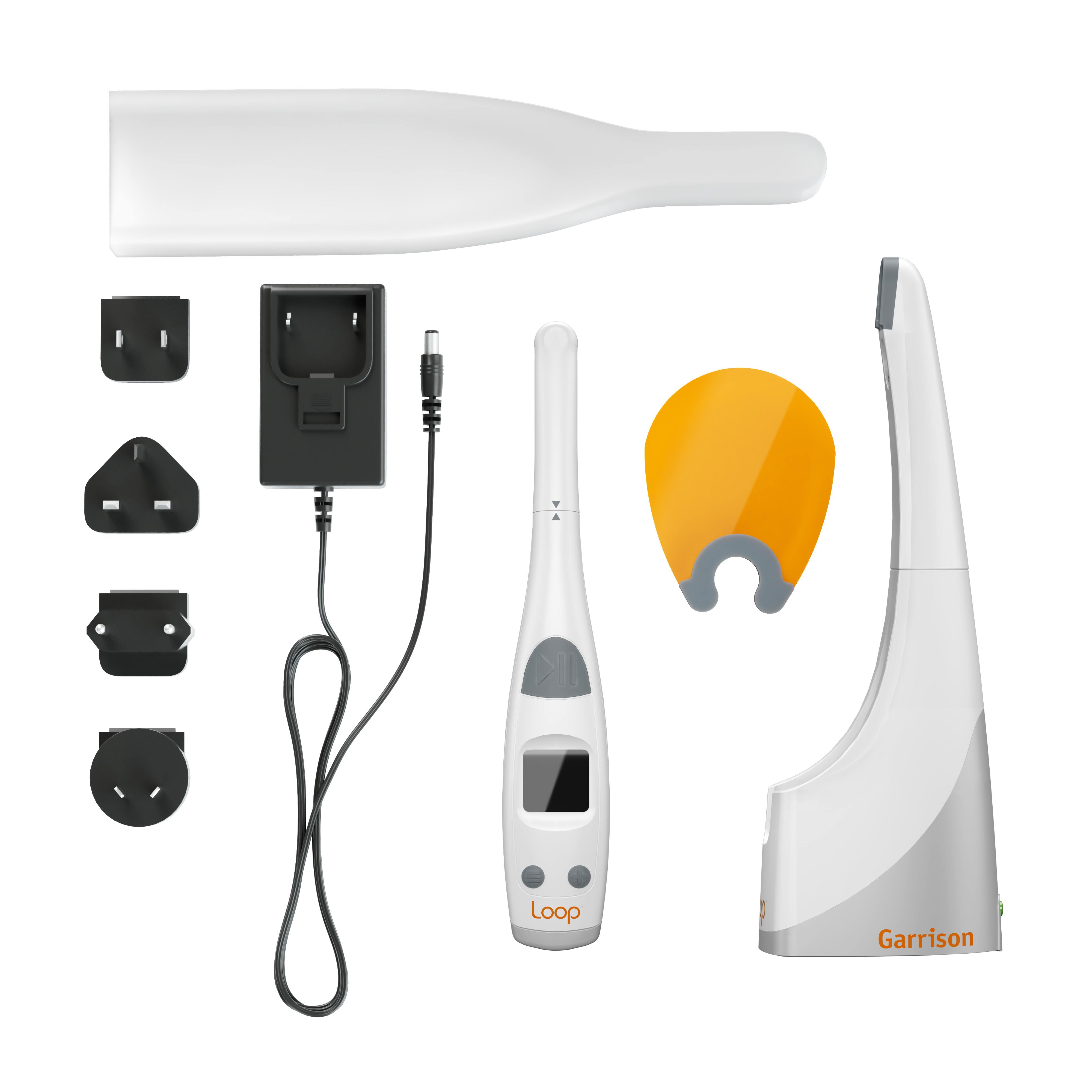
|
Technical Specifications
| Item | Description |
| Operating Modes | Direct Restorative Mode: 1,000 mW/cm² at 5, 10, 15, and 20 seconds 2,000 mW/cm² at 5 and 10 seconds 3,000 mW/cm² at 3 and 5 seconds Tack Mode: 1,000 mW/cm² at 3 seconds |
| Dimensions | Length: 209.6 mm Width: 35.5 mm |
| Weight | 130 g |
| Warranty | 3 year limited warranty on LED Curing Light handpiece and Calibration and Charging Unit |
Sources
*Rueggeberg, F. A., & Craig, R. G. (1988). “Comparative study of different light-curing units and their effect on surface hardness of dental composites.” Journal of Dental Research, 67(1), 118-121. *Peutzfeldt, A., & Asmussen, E. (2005). “Effect of curing time on marginal adaptation of composites in dentin cavities.” Dental Materials, 21(3), 242-247. *Ferracane, J. L. (2006). “Effects of composite formulation and curing protocols on polymerization shrinkage stress.” Dental Materials, 22(3), 211-222. | **Braga, R. R., Ballester, R. Y., & Ferracane, J. L. (2005). “Factors involved in the development of polymerization shrinkage stress in resin-composites: a systematic review.” Dental Materials, 21(10), 962-970. **Bouschlicher, M. R., Rueggeberg, F. A., & Wilson, B. M. (2004). “Effect of degree of cure on the wear resistance and hardness of a dental composite.” Journal of Biomedical Materials Research Part B: Applied Biomaterials, 71B(2), 349-354. **Sulieman, M. (2005). “The effect of high-intensity light-curing on the temperature rise in dental pulp chambers and the cytotoxicity of light-cured dental materials.” Journal of Dentistry, 33(2), 179-186. |
